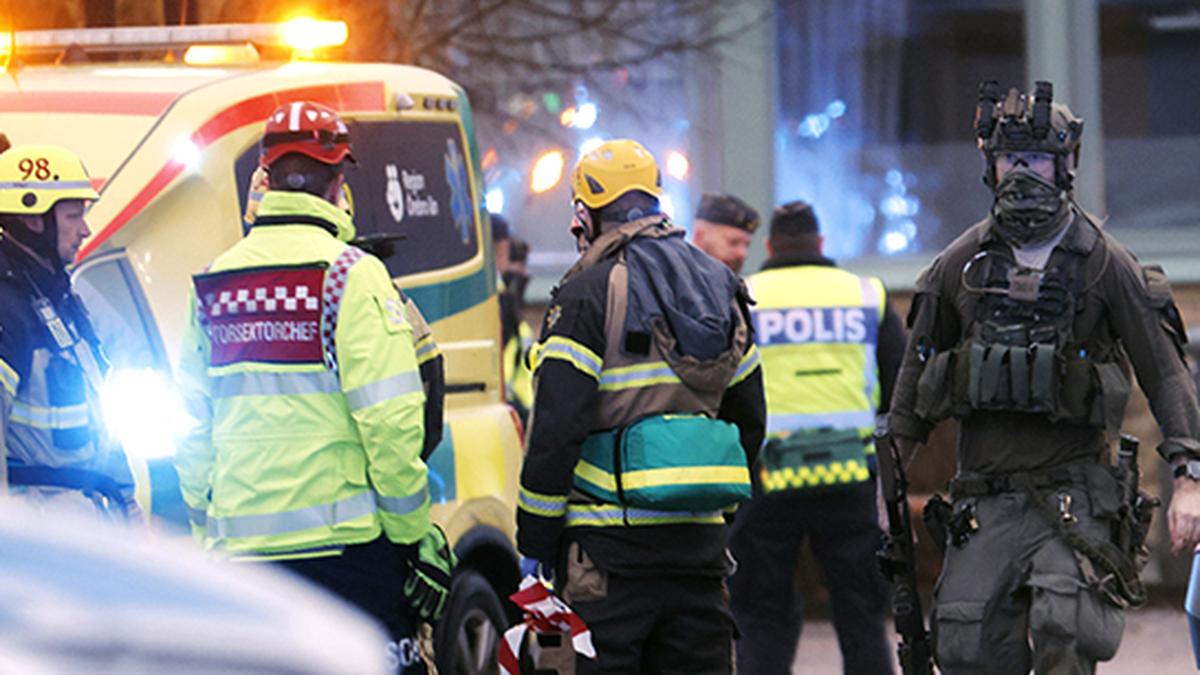 |
|
The tragic events of February 4th and 5th, 2025, in Orebro, Sweden, sent shockwaves throughout the nation and the world. A mass shooting at Campus Risbergska, an adult education center, resulted in the deaths of at least 11 individuals, including the perpetrator. This horrific incident, unprecedented in its scale within Sweden's recent history, underscores the vulnerability of even seemingly safe environments to acts of extreme violence. The attack, occurring in the afternoon after many students had left for the day following a national exam, left a scene of carnage that initially hampered accurate casualty counts. The school, catering to a diverse student body ranging from those pursuing secondary education to immigrants learning Swedish and individuals with intellectual disabilities, was transformed into a scene of unimaginable grief and chaos. The swift response of authorities, including the evacuation of parts of the school and the sheltering of students in nearby buildings, was crucial in mitigating further loss of life, but the devastation wrought remains deeply impactful.
The absence of any prior warnings or threats leading up to the attack adds a chilling layer to this tragedy. Police investigations, focused on determining the perpetrator's motive and any potential connections to terrorism, are underway. While authorities have confirmed that the gunman acted alone and was found dead at the scene, the reasons behind his actions remain shrouded in mystery. The raid on the suspect's home following the shooting has yielded information not yet released to the public, leaving many unanswered questions surrounding the preparation and planning of the attack. The investigation is likely to take time, and the process of identifying victims and providing support to their families and the wider community is already demanding significant resources and efforts from various government agencies and support organizations. The profound grief and shock among the survivors, families of the victims, and the broader Swedish population are palpable, and the event has cast a long shadow of fear and uncertainty over a nation that prides itself on its sense of security and social cohesion.
The immediate aftermath of the shooting has seen a surge of support and solidarity. Prime Minister Ulf Kristersson, in addressing the nation, conveyed the collective shock and grief, while emphasizing the need for patience and restraint in understanding the full picture. The focus has shifted toward addressing the immediate needs of those impacted and to launching a comprehensive investigation to fully understand the chain of events and to determine if any systemic failures contributed to the tragedy. The rarity of school shootings in Sweden highlights the exceptional nature of this event. Although previous incidents involving other weapons have occurred, this attack represents a significant departure from the norm and compels a national dialogue about gun control, mental health support, and security measures in educational institutions. The impact of this tragedy will undoubtedly extend far beyond the immediate vicinity of Orebro. It raises crucial questions about societal security and the challenges of preventing such horrific acts of violence in the future, prompting a thorough review of existing security protocols and potentially leading to legislative changes.
The coming weeks and months will be crucial in understanding the full implications of the Orebro shooting. As investigations unfold, they are likely to reveal much about the perpetrator’s background, mental health, and potential motivations. This information will be crucial not only for bringing closure to the victims' families and the community but also for informing future preventative measures. The focus must remain on supporting those most affected by this devastating event, providing mental health services, and fostering a climate of understanding and healing. The outpouring of national and international support underscores the gravity of this event and the worldwide condemnation of such senseless acts of violence. It serves as a stark reminder that even in nations with generally low rates of gun violence, the threat of mass shootings remains a real and present danger, demanding ongoing vigilance and a collective commitment to creating safer communities for all.
The investigation will also likely shed light on the security measures in place at Campus Risbergska before the attack. While the details of the security procedures are not yet public knowledge, a thorough examination of the effectiveness and adequacy of existing security protocols will be a vital part of the post-incident review. This will help inform any necessary improvements to security measures at schools and other public facilities across Sweden, and possibly beyond. Learning from the past is crucial to preventing future tragedies. By conducting a comprehensive investigation and addressing the underlying issues contributing to such acts of violence, Sweden can move forward while also taking proactive steps to strengthen security and enhance the wellbeing of its citizens. This process demands transparency, collaboration, and a deep commitment to understanding the roots of such violence in order to prevent it from happening again.
Source: Sweden’s worst mass shooting leaves at least 11 dead at an adult education centre
